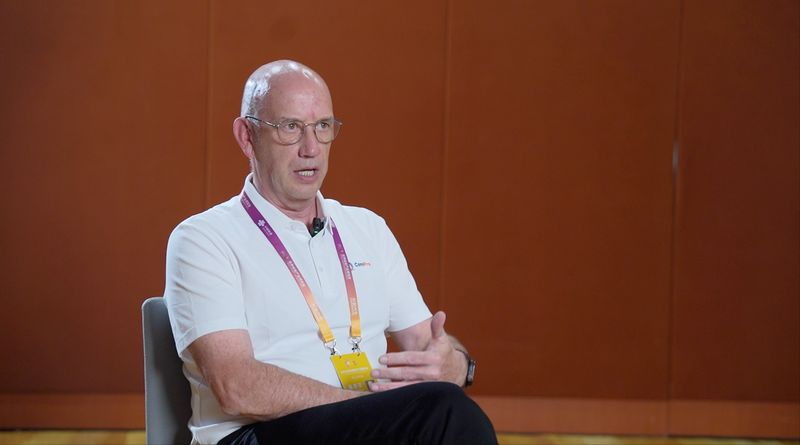German quality management specialist ComPro is set to deepen its footprint in the Chinese mainland's surging automotive sector. The firm provides tailored software solutions that help local manufacturers meet international standards, guiding them through every step of quality control—from final products to process implementation, machining equipment, and materials.
Speaking with Bridging News on the sidelines of the World Smart Industry Expo 2025 in Chongqing, ComPro general manager Stephan Sprink highlighted the importance of compliance for Chinese enterprises eyeing the German and European markets. Stephan Sprink emphasized that every element of the quality process must align with region-specific regulations.
Beyond compliance, Sprink sees AI and digitalization as key drivers of future growth. ComPro's software integrates data transformation and processing with AI-powered insights, offering actionable recommendations based on trained models and accumulated experience. This blend of analytics and automation helps customers optimize workflows and accelerate innovation.
Initially focusing on international clients with local factories, ComPro is now turning directly to homegrown companies as the Chinese mainland's auto industry evolves, particularly in electric vehicles (EVs). Sprink observed that on the road, he sees mostly Chinese cars with new technologies that are strongly AI- and software-driven, noting that the traditional petrol engine is no longer a topic there.
With the Chinese mainland poised to set global standards thanks to its speed and innovation, Sprink envisions a powerful partnership: the Chinese mainland's rapid development combined with Germany's reputation for stability and quality. He noted that this bond is key for the next steps in global automotive progress.
While the IATF 16949 standard outlines broad quality requirements for the auto industry, Sprink points out that specific areas—like EV production, autonomous driving simulations, sensor qualification, and reliable data communication—require further customization and adaptation.
Reference(s):
cgtn.com




